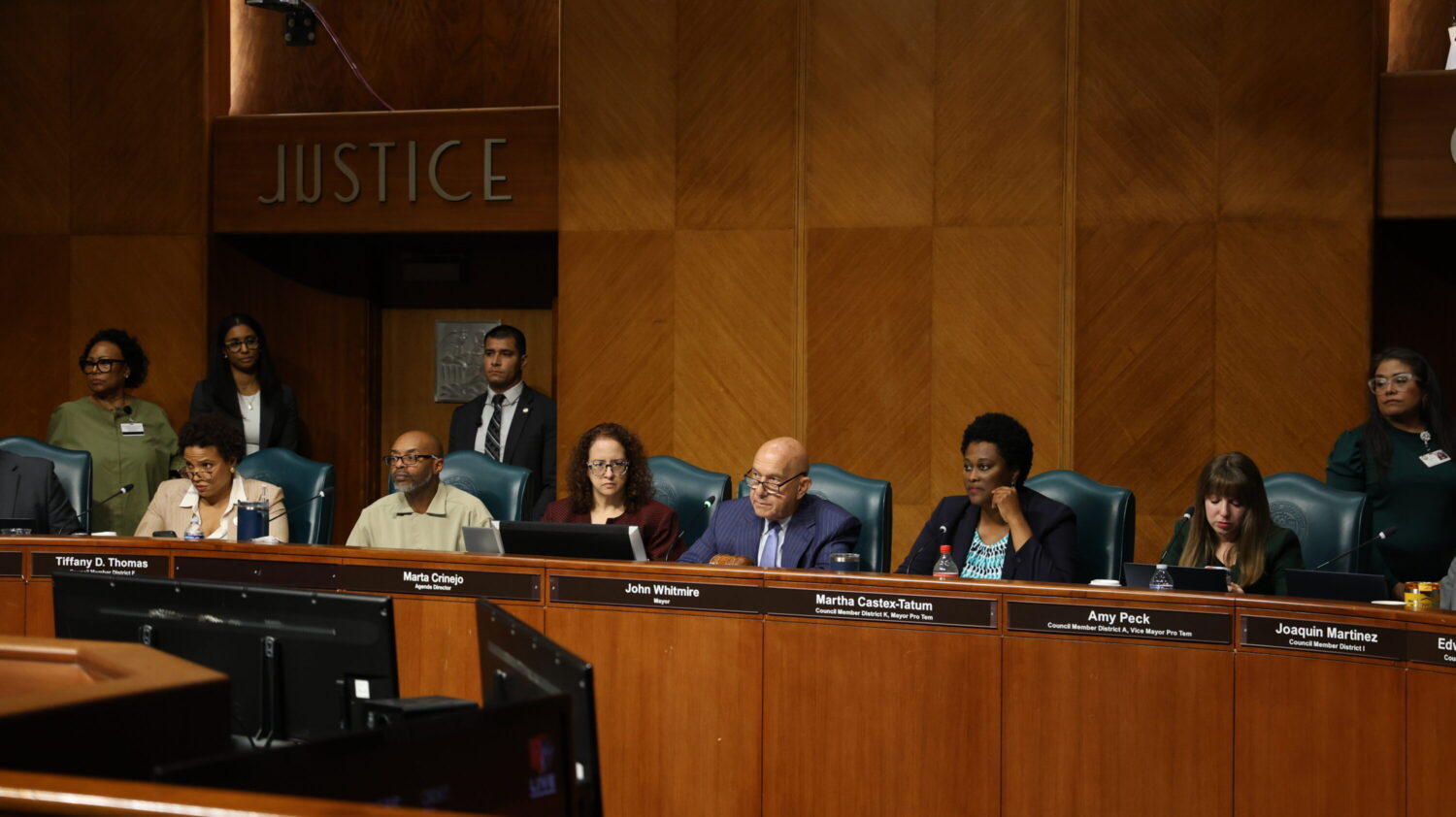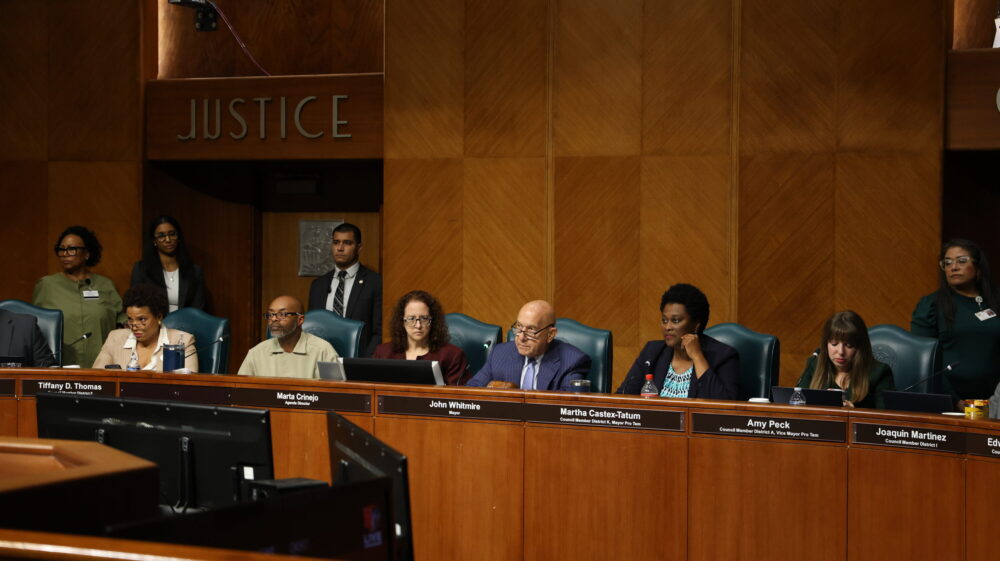Justin Doud/Houston Public Media
Pictured are Mayor John Whitmire and members of the Houston City Council on June 4, 2025.
For the second time in as many years, the Houston City Council granted Mayor John Whitmire’s request to not raise the city’s property tax rate on Wednesday — this time, despite unanswered questions and opposition from a handful of council members.
“There are options still in front of us that will be used instead of raising taxes,” Whitmire said, adding that he isn’t afraid to raise taxes after doing so several times during his 50 years in the Texas legislature. “(Raising taxes) is the thing to do when you have the confidence of the public. The public is asking us not to raise taxes.”
Whitmire pointed to the first tax rate approved during his time in office in October 2024. At the time, four city council members — led by Sallie Alcorn — were pushing for an increase to cover the cost of the city’s response to the derecho wind event and Hurricane Beryl. On the day of that vote last year, Whitmire revealed he had obtained more than $32 million from Gov. Greg Abbott to cover debris pickup costs — prompting the group of council members to drop their push and the city council to unanimously support the flat rate.
On Wednesday, Whitmire unveiled no unexpected sources of revenue — and Alcorn voted against the flat rate, along with council members Abbie Kamin and Edward Pollard. Eleven council members and Whitmire voted in favor.
“It’s not emotional or political, it’s just math,” said Alcorn, who chairs the budget and fiscal affairs committee. “The city’s revenue growth does not keep up with spending to support the vital services provided by our property and sales tax-supported general fund.”
Their opposition came as the city grapples with chronic, ballooning budget deficits driven by increased costs and a throttled ability to collect additional revenue.
Alcorn pointed to three major labor agreements over the past 18 months that increased wages for firefighters, police officers and city workers.
“The city is a service organization,” she said. “Our biggest expense is our people. All of these raises were deserved. I supported them. We have to recruit, hire and retain good employees, and salaries comprise the bulk of our general fund spending, but I supported these contracts with a clear eyed understanding that we would have to raise revenues to afford these contractual obligations.”
On the other side of the ledger, a voter-imposed cap on property tax revenue has slashed more than $2 billion off the city’s revenue collection over the past decade. Even with the cap, the city could raise taxes by about 4% this year without seeking voter approval.
RELATED: Houston City Council passes Mayor John Whitmire’s $7 billion budget after protest disrupts meeting
The city council approved the $2 billion general fund budget in June with the assumption of that incremental, 4% increase in property taxes. Without that increase, the total gap between spending and revenue will increase from what was planned to be $76 million to what is projected to be more than $128 million — following a record deficit of $145 million last fiscal year, which ran through July.
Because of how the cap works, keeping the rate flat over the next year will reduce the amount of revenue the city can collect going into the future.
“While I have respect and trust in you and your team and your plans to right the ship, I think it’s a swing and a miss to not bring in the revenue we need to cover our budget,” Alcorn told Whitmire. “What I know with certainty is that dipping further into our fund balance by $53 million weakens the city’s financial position and balloons future deficits.”
RELATED: At the peak of hurricane season, Houston city finances face resiliency challenges
Houston City Controller Chris Hollins, the city’s chief financial officer, has warned the chronic budget deficits risk depleting the city’s reserve funds, leaving little room for emergency spending in the case of disasters. Pointing out the city of Houston has the lowest tax-and-fee rate of the major municipalities in Texas, his office presented a range of fee and tax options to the city council last week that he said could bring in an additional $200 million per year.
“Politicians don’t want to be seen or accused of raising taxes,” Hollins told Houston Public Media’s Hello Houston talk show just before the city council vote. “But we also have to be honest with ourselves about what these services cost. … We have to decide one of two things: either stuff is too expensive and we should bring the cost of that down and lower our cost as a city, or we’re paying the right amount for these services and they’re necessary, and then we have to figure out how to cover those costs.”
In addition to seeking revenue from the state over the last year, Whitmire’s administration also slashed spending through a voluntary retirement incentive program and cuts to most departmental budgets. The administration has not laid out a specific plan for addressing the looming deficit over the next year.
Council member Mario Castillo, vice chair of the budget and fiscal affairs committee, said city officials need “a comprehensive plan around how we’re going to close our budget gap and fund our city services.”
“If that means additional cuts to city services, where is that coming from, and what does that look like?” he told Houston Public Media just before he voted in favor of the flat rate.


